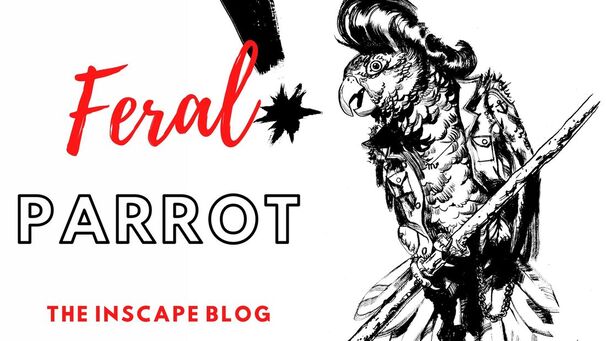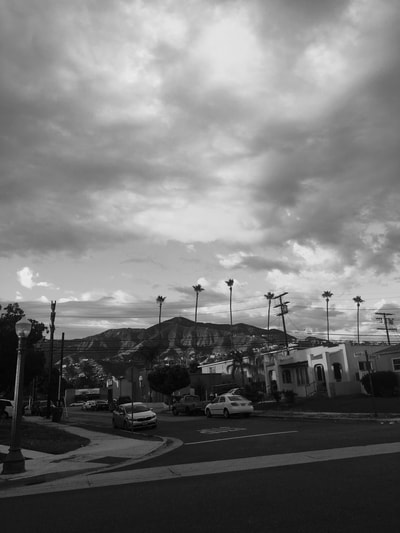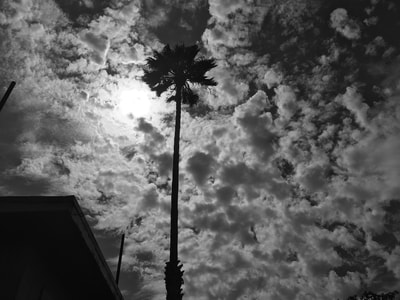- Folio No. 9
- About
- Feral Parrot : The Blog
- INTERVIEWS
- SUBMISSIONS
-
ISSUE ARCHIVE
- PRINT Chapbook No.6 Healing Arts
- Online Issue No.9
- Online Issue No.1 Fall 2016
- Online Issue No.2 Spring 2017
- ONLINE Issue No.3 Fall 2017
- PRINT Vol 72 No 2 Fall 2017
- PRINT Vol 73 No.1 Fall 2018
- ONLINE Issue No. 4 Fall 2018
- Online Issue No.5 Summer 2018
- FOLIO No.1 Fall 2018 VOTE
- ONLINE Issue No.6 Fall 2018 Fall Spirituality
- FOLIO 2 Fall 2019 Celebrating Dia De Los Muertos
- FOLIO No.3 -- Moon Moon Spring 2019
- FOLIO No.4 Celebrating New PCC Writers
- FOLIO No.5 City of Redemption
- FOLIO No.6 Spring 2020
- FOLIO No. 7 - Winter 2021 Into the Forest
- 2022 Handley Awards
- Inscape Alumni Board
- PRINT Chapbook No. 7 Healing Arts
- Blog
- Untitled
Written by Tomoko IrieThe atmosphere that is introduced in the first stanza of Adrineh Arakelian’s poem, “Climate”is one that strikes a nostalgic chord in me. It's pouring down, not quite perpendicular to the ground. The angle and velocity vary widely with the sway of branches across the street. The next stanza runs with the nostalgic note, while pitching into a sense of loneliness and the silence of rain. The only sound we hear is the electric heater. The question of memory brings a nostalgia of the speaker into the picture, of the “gulf coast storms”. Perched in my attic room, the drops on telephone wires slightly elongate with gravity. I hear humming from the electric heater, oscillating at my feet. It's not even yet October. Remember the gulf coast storms? The speaker now wishes for rain. For “hard rain”, rain that is “downpours like a river crossing in the road”. The image of such a downpour is reminiscent of storms and of dangerous situations, but the speaker talks about this dangerous thing as something that they want to occur. They wish for this and long for it. How I resent the consistency of mists and drizzle. How I want a hard rain, fast-changing weather, downpours like a river crossing in the road, culverts an adult could crawl into. In the fourth stanza, there is more reminiscence of the speaker about their memories. The feeling of nostalgia is quite potent at this point; the “tattooed” knuckles, the “Laughter / amidst large bellies”, and the “dancing” paint an image of family and happiness. A drink in one hand, a sweet face dancing with me. That collection of souls draws me like a magnet to metal. B-O-R-N-T-O -R-U-N tattooed on their knuckles. Laughter amidst large bellies, shaking and aching. However, the happy tune drops with the mention of “a tragedy” that the speaker “followed” here. “Attention [is] turned to loss elsewhere” and the “tragedy” that was the reason of the speaker’s arrival is cast aside. The sense of loss in this stanza fit yet again into the nostalgia feeling that casts its shadow upon this poem. I followed a tragedy there, much later, after civilization, after the post-disaster gold rush, attention already turned to loss elsewhere. Here, the mention of “Mardi Gras beads” creates the image of New Orleans and its famous Mardi Gras parade, but that is in the past, “from last year’s parade”. Leftover memories permeate the “branches of / majestic live oaks” and onto the “asphalt road”. The road appears to symbolize the road of thoughts, the trail that memories follow. You can't stay after the crowd's gone. There's left just the mess of Mardi Gras beads from last year's parade, hanging from the branches of majestic live oaks, sun-bleached, driven over, ground into the asphalt road. And finally, the poem returns to the rain at the end. The nostalgia follows the rain and fills the namesake of the poem; the climate is the climate of the speaker’s mind and memory. Nostalgia is the aim and the “deluge” is the powerful rush of emotions that the speaker feels because of this. The staggered roof shingles glisten in the hard rain giving the appearance of movement. But they're stapled, stuck in place, trying to keep the deluge at bay. “Climate” is a poem that rings with both a sad and happy note of nostalgia that is hard to shake off. Both the rain and the lack thereof delve into the unconscious and psychological aspects of memory. But the “staggered roof shingles” hold strong and keep “the deluge at bay”, the deluge of rain that is both welcome and unwanted. Tomoko is a student at UC Berkeley. She says "Rain is a symbol of nostalgia for me, personally. I love rain and I associate so many memories and find inspiration in rain and the weather. So, I was instantaneously drawn to Climate.
0 Comments
Leave a Reply. |
IMPORTANT NOTE:
PCC Inscape Magazine, housed at Pasadena City College, is following Coronavirus protocols. At this time our staff continues to read submissions and publish web content. Note:
Blog Posts reflect the opinions of the writer and not the opinions of Pasadena City College or Inscape Magazine Editorial Staff Members. Archives
December 2023
Categories
All
|




 RSS Feed
RSS Feed